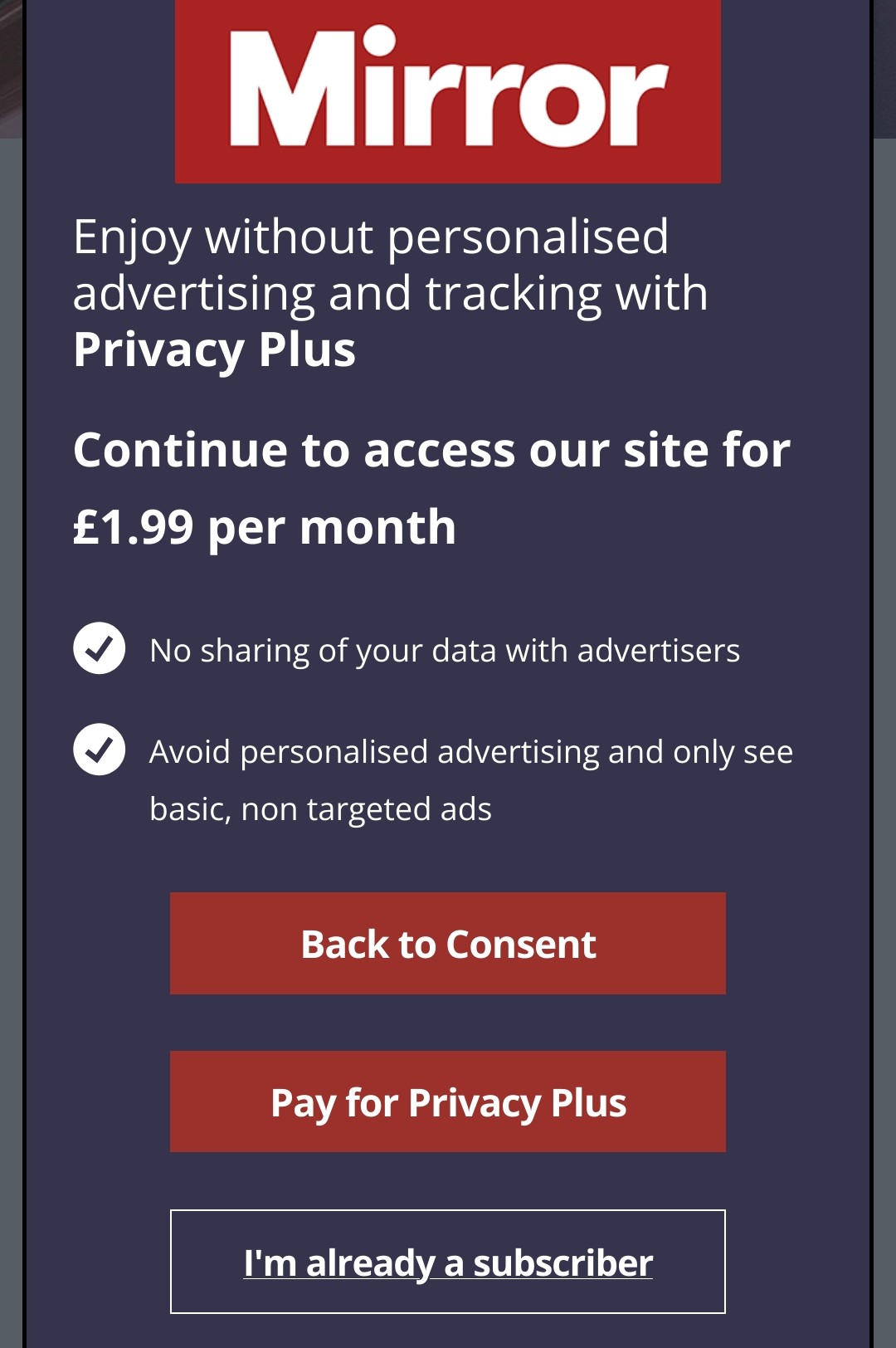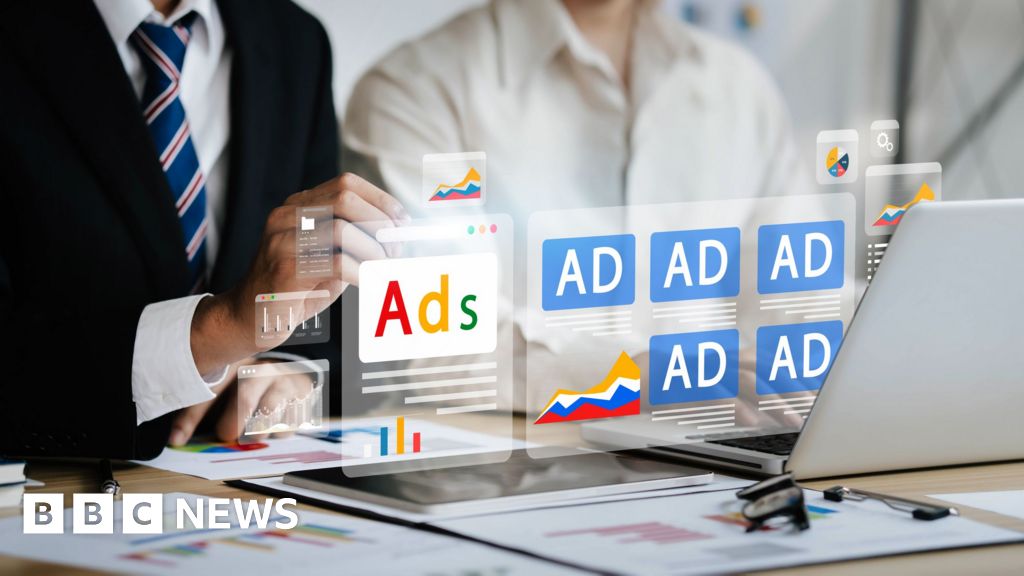It is an increasingly common message from websites: browse for free - if you allow us to track your data and target you with personalised ads - if you don’t, hand over some cash.
The model is known as “consent or pay” and, while it may be becoming increasingly common, questions remain over whether it is ethical or even legal.
The UK data regulator, the Information Commissioner’s Office (ICO) has launched a consultation, external on the practice - it will report its findings later this year.
“In principle, data protection law does not prohibit business models that involve ‘consent or pay,’” the ICO says on its website.
But it continues: “However, any organisation considering such a model must be careful to ensure that consent… has been freely given and is fully informed, as well as capable of being withdrawn without detriment.”
[…]
Newspapers such as MailOnline, The Sun, The Independent and The Times have all recently brought in “consent or pay” models.“It’s basically saying, ‘We’re giving people a choice. They can either pay and get ad-free access to our articles, or they can be tracked, or they can walk away and not read it,’” Philippa Donn says.
This question being considered by the ICO and others is - is that a fair choice?
They can either pay and get ad-free access to our articles
But it’s not ad-free access though.

Absolutely not then - if you’re getting money from me I will not brook any ads
No, in the sense that violating people’s privacy should be disallowed entirely and not be a matter of “consent.” If a website requires payment then it should be a payment from all users in order to receive access, not just from privacy-conscious users in order to receive privacy.
A “consent and pay”, or “paywall” (or even “register-wall”) website is totally fine and should be free to exist - but it shouldn’t be indexed by search engines as a response to a question, and shouldn’t be linkable on any form of social media.
Wasn’t sure I’d agree when I started reading, but I like the way you think.
Sorry, there are no remaining questions.
It is as unethical as it can get. It’s evil late-stage capitalism, and the people perpetrating it should be strung up.
I encountered that the other day and was quite surprised. I then went and summoned the archived version, read the article and carried on with my day.
It seems an effective way of making your ad revenue drop off a cliff but it might be an admission that they aren’t making enough from ads.
Enough people pay or concede their privacy. The people that avoid it were already using ad blockers and not making them any money.
Yes, we think we should pay but in the sense that we should put more money into non venture capitalist and non shareholder backed, non-commercial, open source and privacy-focused sites and services etc, and forgo the commercial sites and services that think they need to erode our privacy in the first place.
That’s fair enough. They can do that on their site and I’ll just not bother reading it and go somewhere else. Fuck them.
We dumbly agree, out of convenience or some notion that if we wanted to read the paper edition we’d have to pay for it, but one can shell out cash for the paper, pick it up in a waiting room, read a friend’s copy, etc.
As soon as we attach a subscription to an online edition, all that happens is they get more data on us (as we are les inclined to delete their tracking cookies) whilst handing over solid confirmation that we are who they suspected we probably are.
If you must subscribe, use a dedicated browser & multiple measures to confound tracking.





